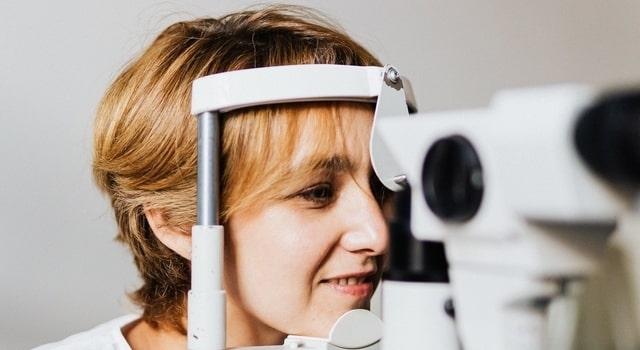
Regular vision check-ups are vital for maintaining eye health, but not all check-ups are created equal. Many believe that a basic vision screening test is sufficient to monitor their eye health, but this is only sometimes the case. Understanding the limitations of basic vision screenings and the importance of comprehensive eye exams can empower you. This knowledge gives you the control to make better decisions for your eye care.
What is a Vision Screening?
A vision screening is a preliminary check that identifies potential vision problems. Often performed in schools, workplaces, or during routine health check-ups, these screenings detect significant vision issues. Screenings commonly identify conditions such as nearsightedness, farsightedness, or astigmatism. They typically involve simple tests like reading letters on an eye chart from a distance.
While vision screenings help identify obvious problems, they fall short in several critical areas. Here’s a closer look at what vision screenings can and cannot detect:
What Vision Screenings Can Detect
- Refractive Errors: Basic screenings can identify if you need glasses or contact lenses due to refractive errors
- Basic Visual Acuity: They measure how well you see at a distance
- Major Eye Alignment Issues: Screenings can sometimes catch significant issues with eye alignment, like strabismus
What Vision Screenings Cannot Detect
- Comprehensive Eye Health: Vision screenings do not evaluate the overall health of your eyes. They miss out on detecting conditions like glaucoma, cataracts, and macular degeneration.
- Underlying Medical Conditions: Conditions such as diabetes and hypertension can have early manifestations in the eyes. Screenings usually don’t pick up these early signs.
- Detailed Vision Problems: Problems like subtle misalignments, binocular vision, and eye coordination issues often go undetected in a basic vision screening.
The Benefits of Comprehensive Eye Exams
A comprehensive eye exam goes beyond the scope of a vision screening. An optometrist or eye doctor conducts these exams, providing thorough evaluations. They can detect a range of eye and health issues early on. Here are some key benefits:
- Early Detection of Eye Conditions: Comprehensive eye examinations can catch conditions such as glaucoma, leading to vision loss if left untreated
- Detection of Systemic Health Issues: Your eyes can reveal signs of systemic conditions like diabetes and high blood pressure, allowing for early intervention
- Personalized Vision Correction: Comprehensive exams provide accurate prescriptions and detect subtle vision issues, ensuring optimal vision correction
Why Regular Eye Exams Are Essential
Regular comprehensive eye exams are essential for maintaining good eye health and overall well-being. Adults should aim to have an eye exam every one to two years or more frequently if an eye care professional recommends it. Children also benefit from regular exams, which can catch and address vision issues early. This support is crucial for their development and academic performance.
Eye Exams Near Me: Your Path to Better Eye Health
Consider requesting a comprehensive eye exam if you've only experienced basic vision screenings. It’s a proactive step towards preserving your vision and detecting potential health issues early. 20/20 Eyecare offers thorough, professional eye care tailored to your needs.
For more information about our comprehensive eye exams, visit our eye exams page.
